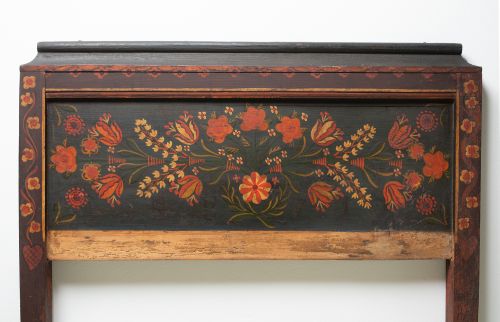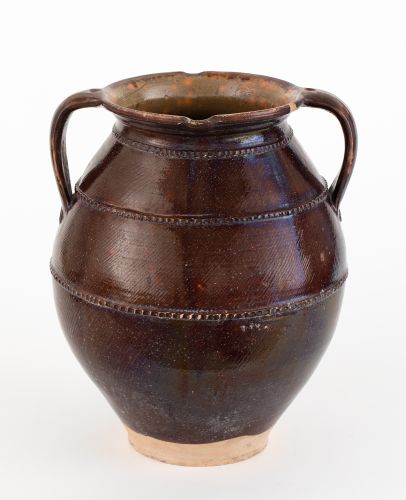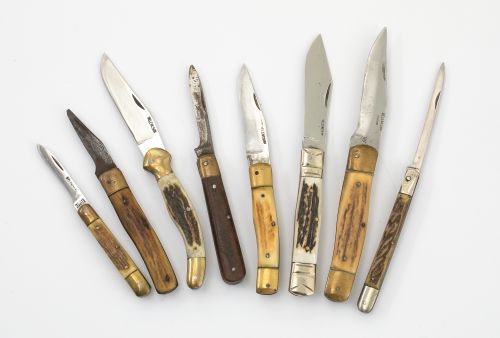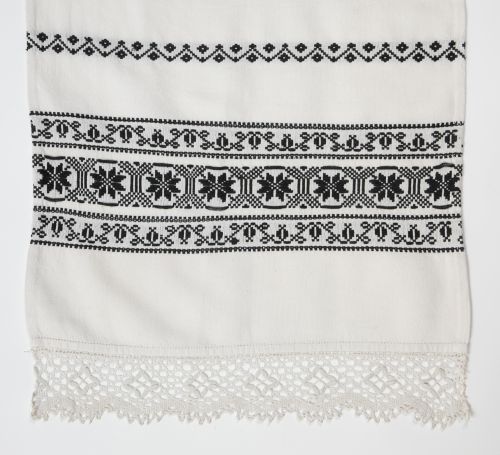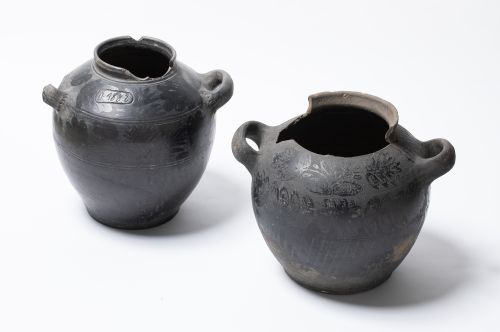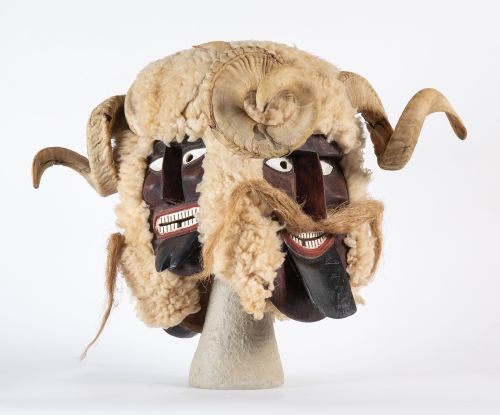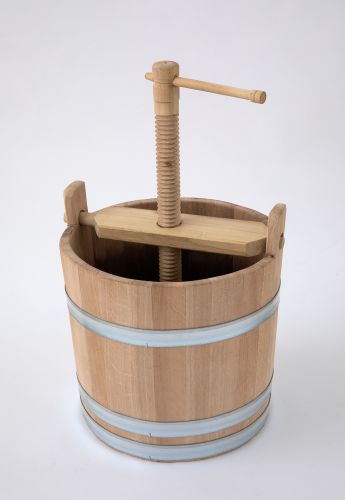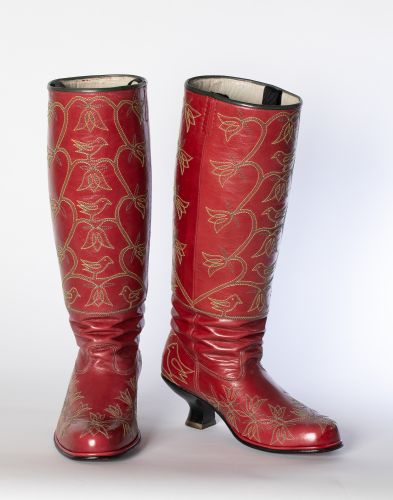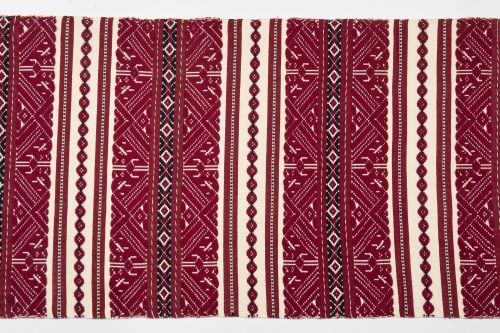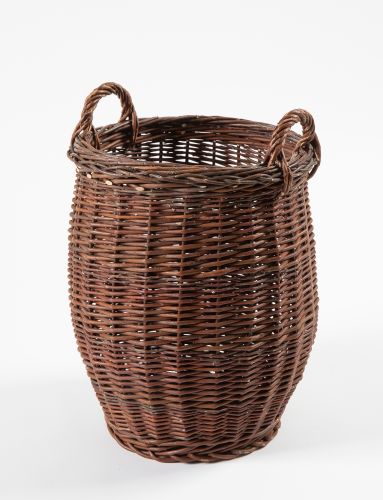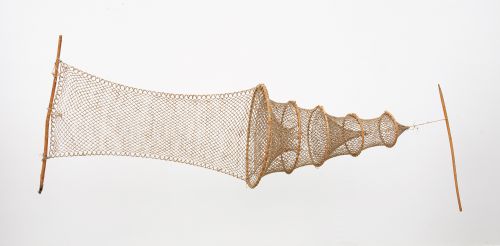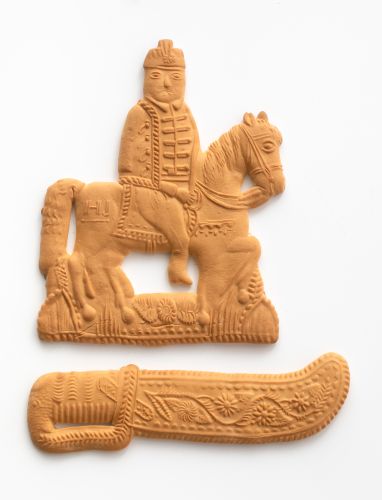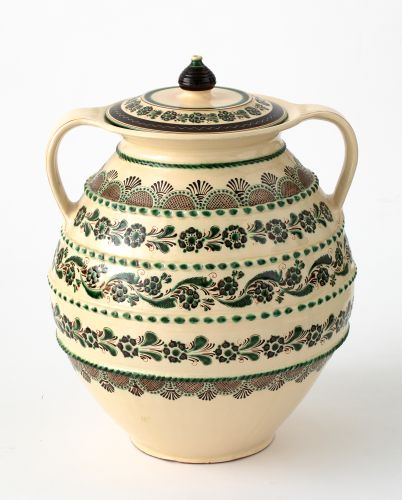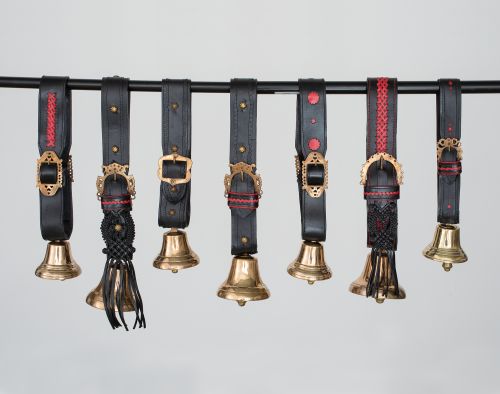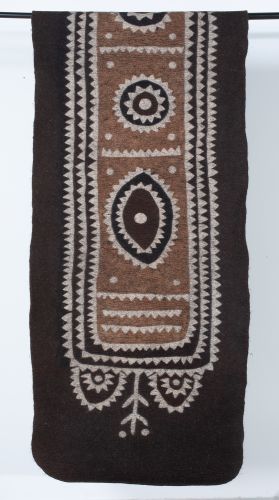The Fazekas dynasty of Nádudvar

Sr FAZEKAS Lajos (18th century) and Sr FAZEKAS Lajos (1834–1890)
Jar and flour jar / 1742 and 1882
clay, black pottery from Nádudvar, ‘pebble-scoured’ decoration, reduction firing
Photo: SULYOK Miklós
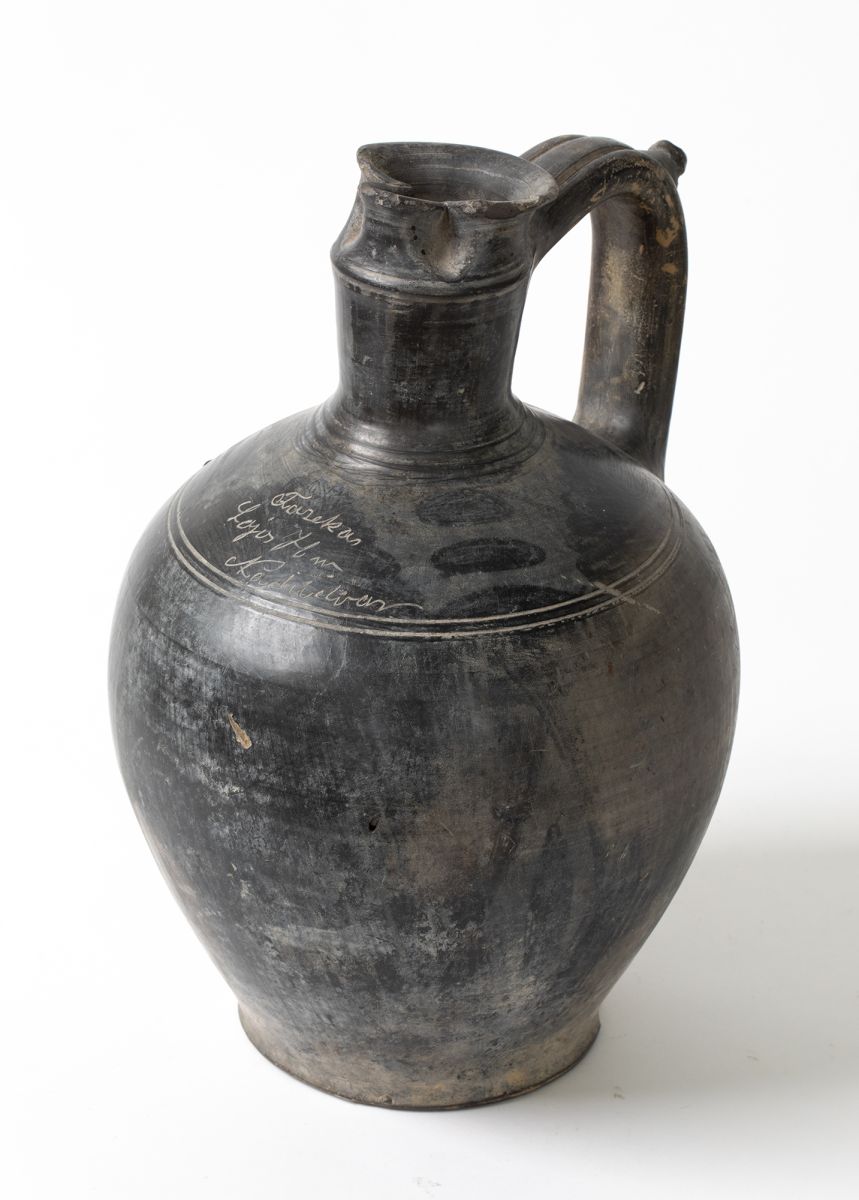
Sr FAZEKAS Lajos (1859–1942)
Harvesters’ jug / 1925
clay, black pottery from Nádudvar, ‘pebble-scoured’ decoration, reduction firing
Photo: SULYOK Miklós
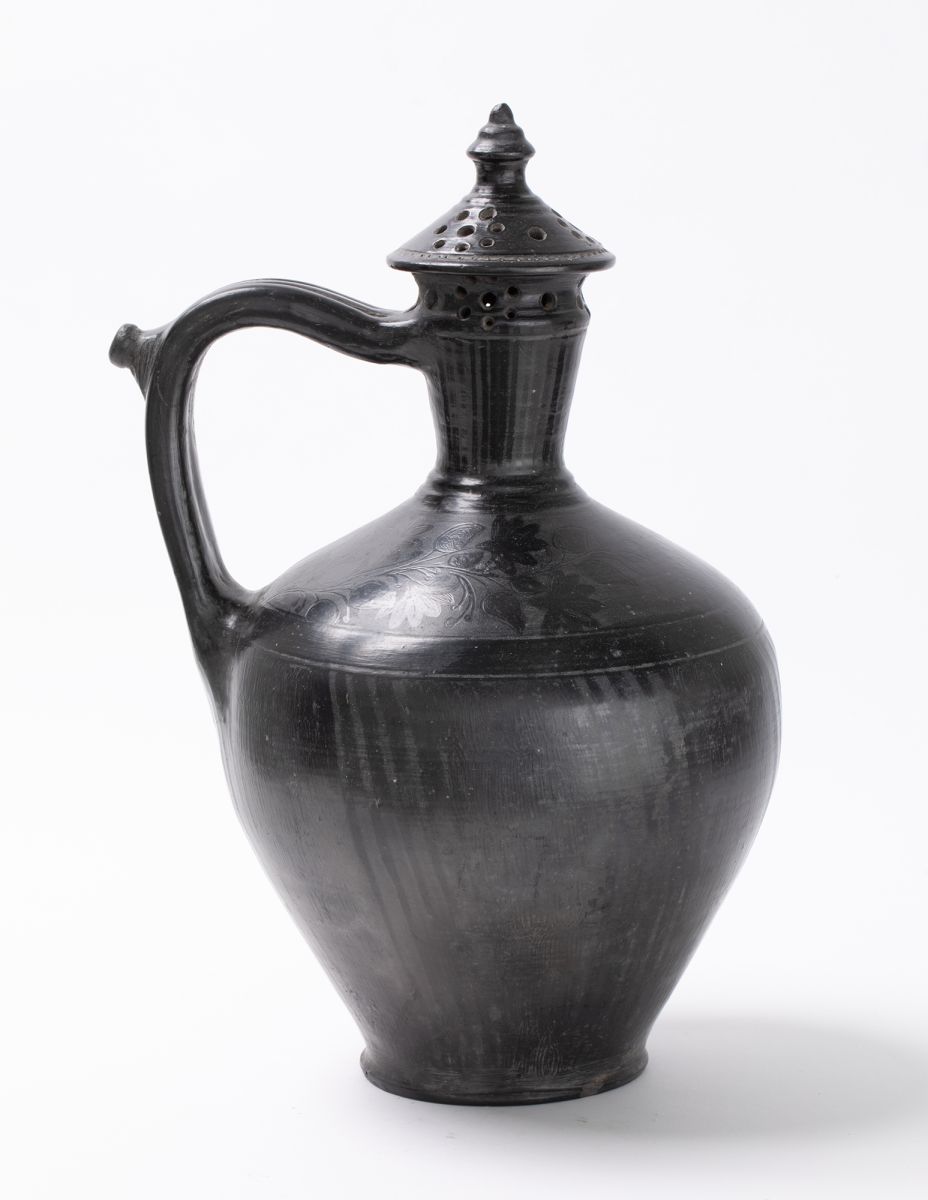
Sr FAZEKAS Lajos (1895–1959)
Behatted jug / 1952
clay, black pottery from Nádudvar, ‘pebble-scoured’ decoration, reduction firing
Photo: SULYOK Miklós
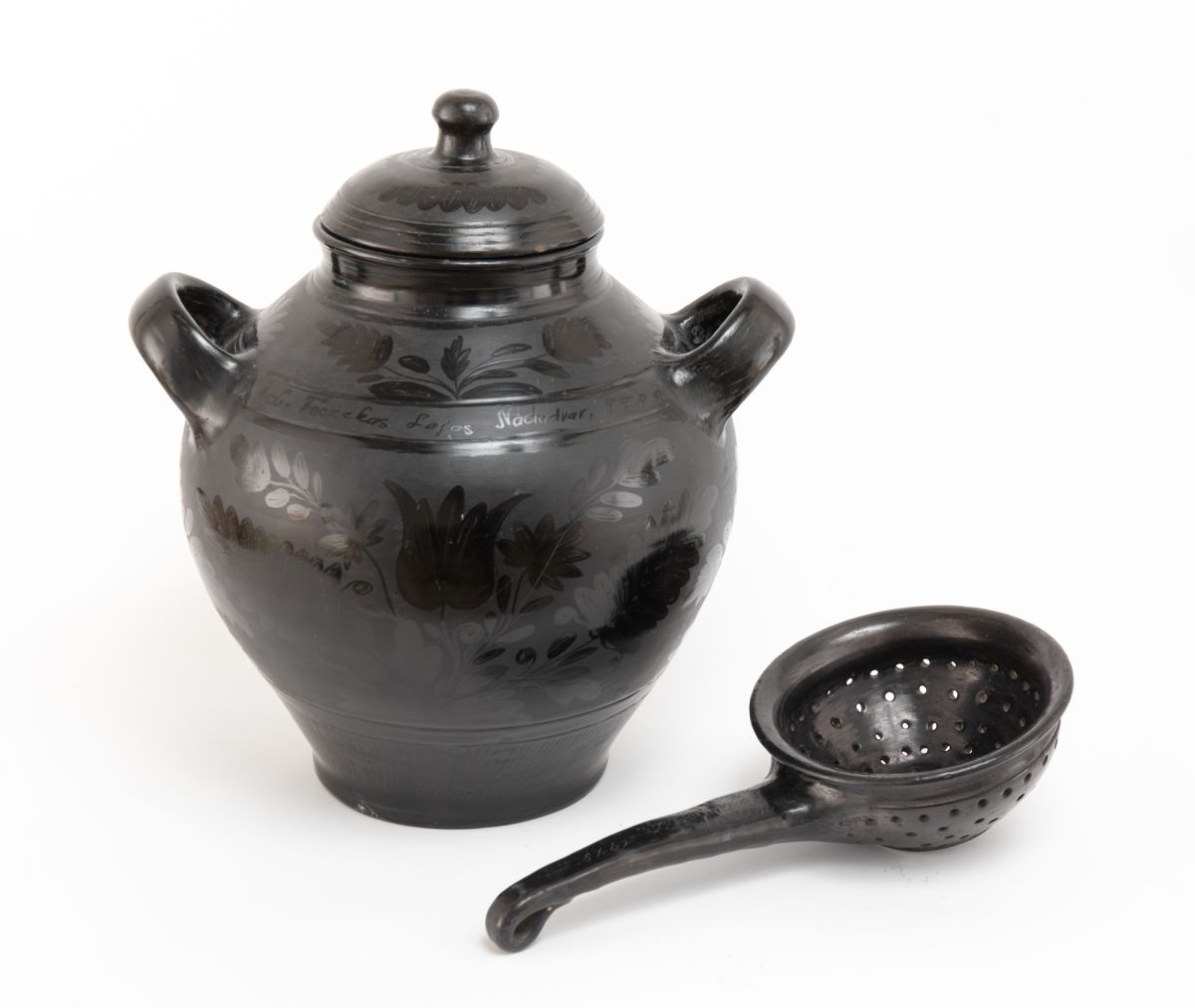
Sr FAZEKAS Lajos (1918–1998) and FAZEKAS Lídia (1911–2003)
Flour jar with lid and pasta sieve-spoon / 1989 and 1978
clay, black pottery from Nádudvar, 'pebble-scoured' decoration, reduction firing
Photo: SULYOK Miklós
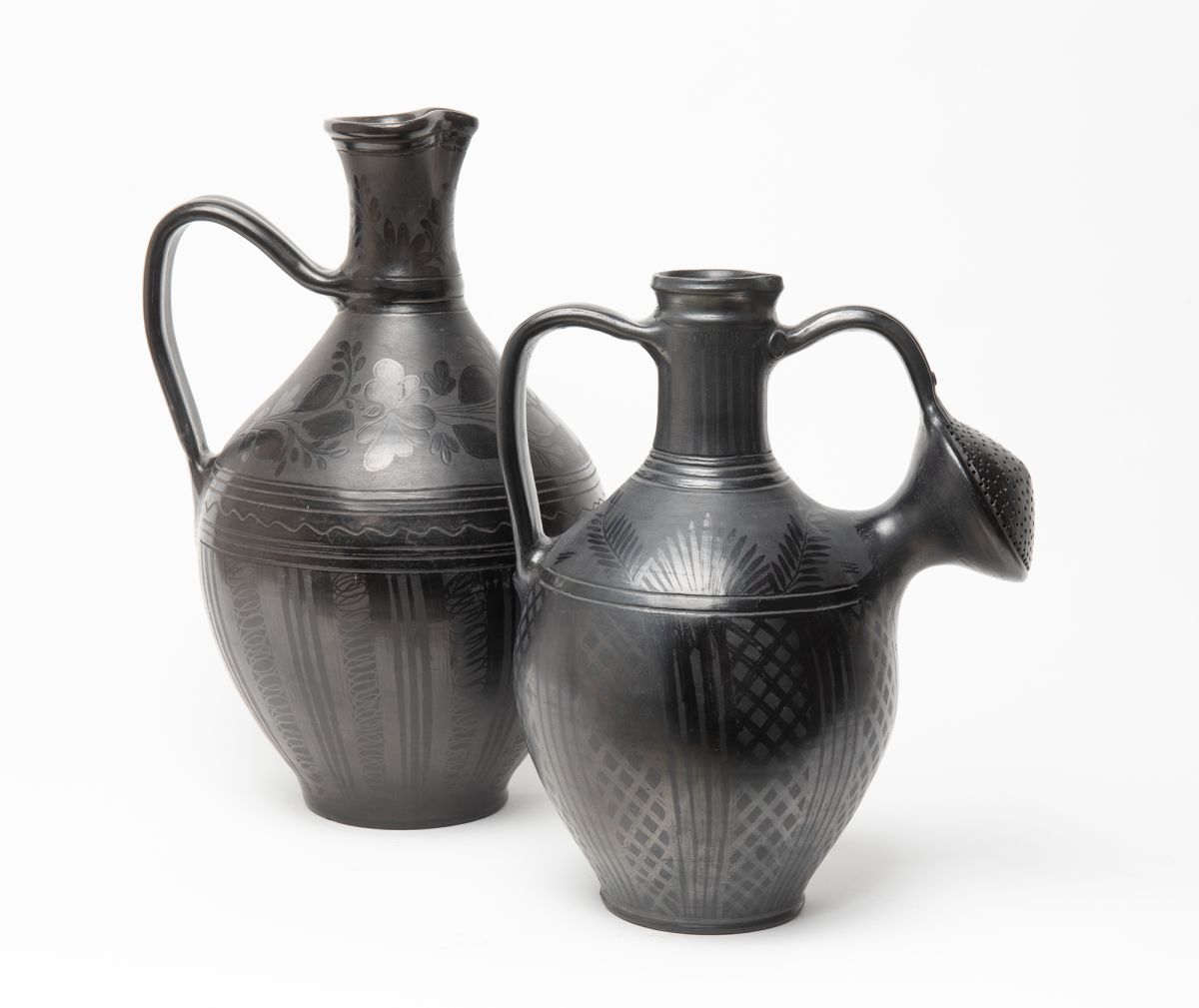
FAZEKAS István and Sr FAZEKAS István (1924–2007)
Hip flask and rose-watering can / 1999 and 1994
clay, black pottery from Nádudvar, ‘pebble-scoured’ decoration, reduction firing
Photo: SULYOK Miklós
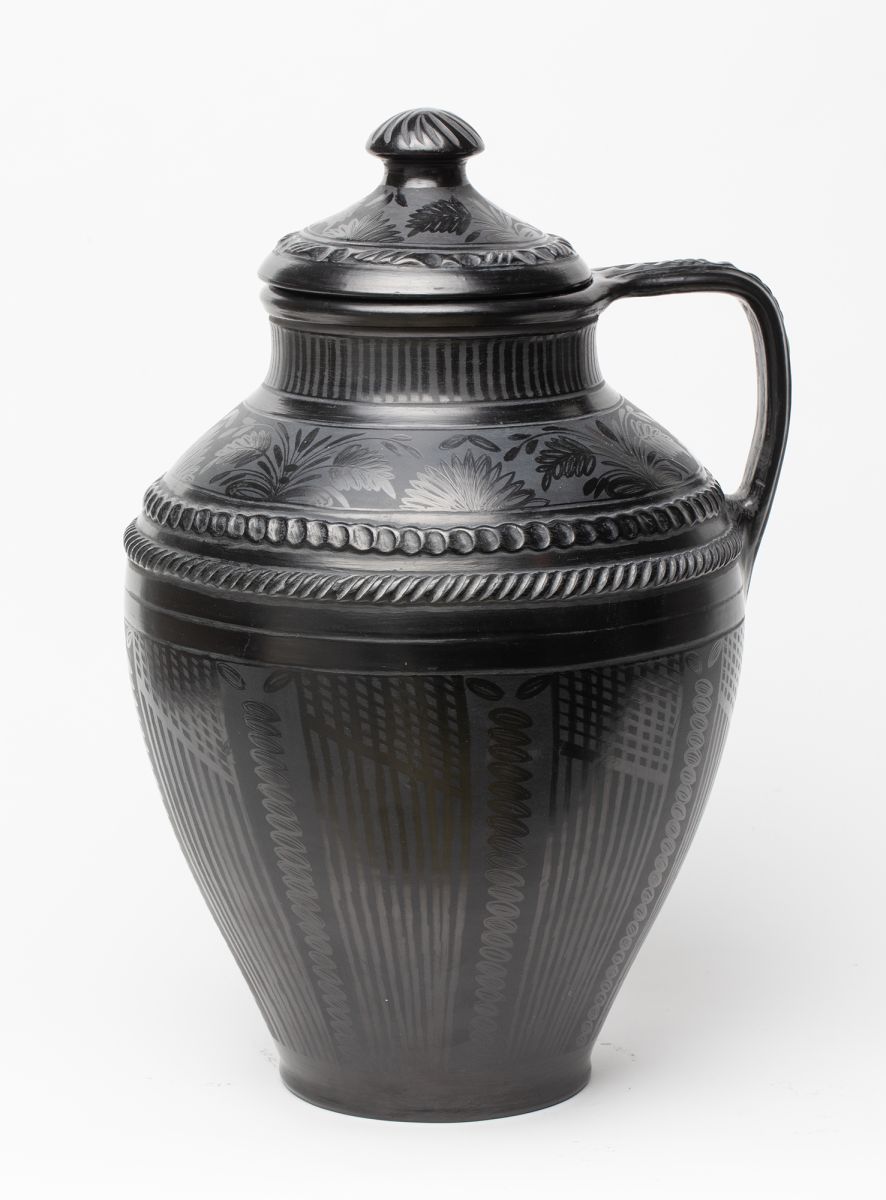
FAZEKAS Lajos
One-eared can with lid / 2011
clay, black pottery from Nádudvar, ‘pebble-scoured’ decoration
Photo: SULYOK Miklós
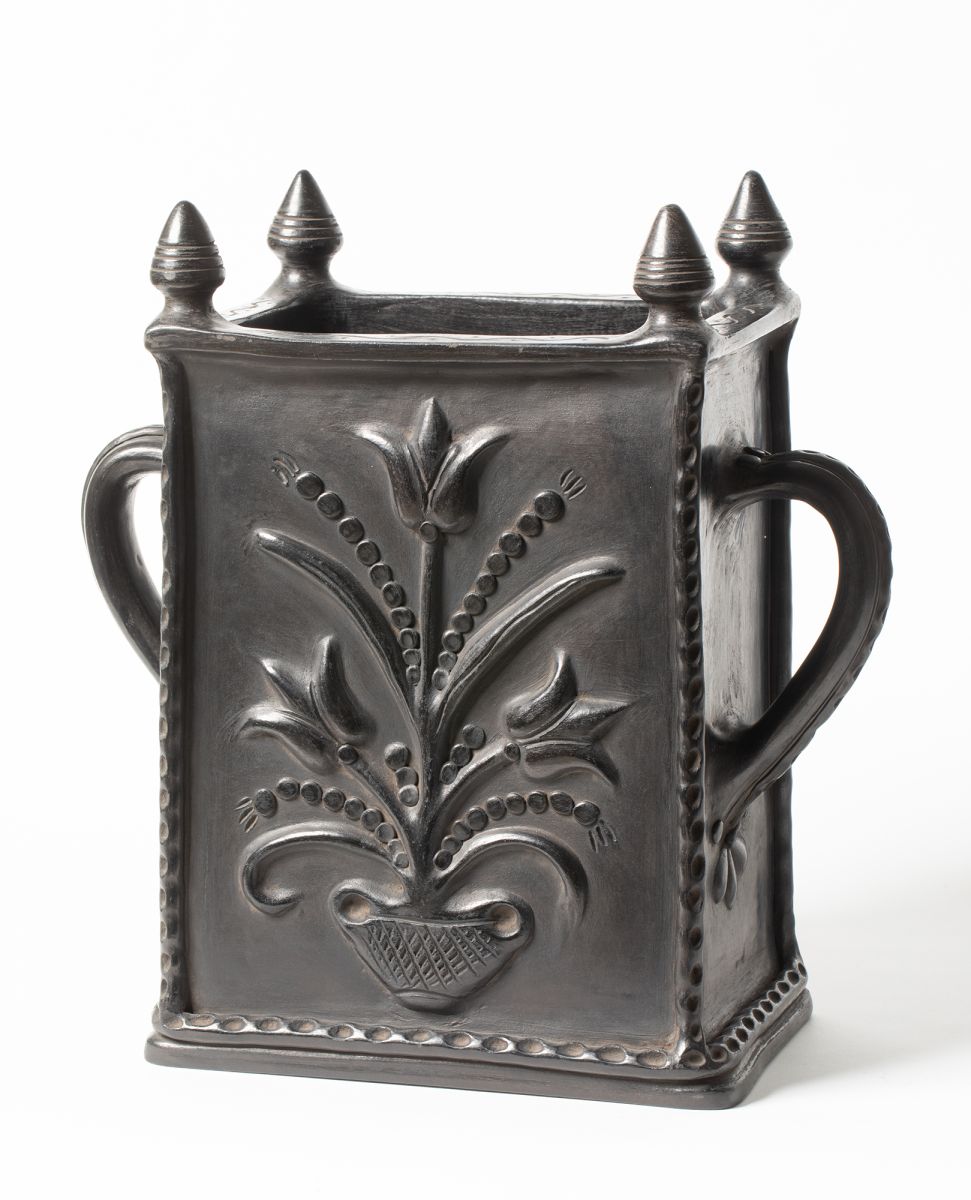
Jr FAZEKAS István
Candle-dipping vessel / 2021
clay, black pottery from Nádudvar, ‘pebble-scoured’ and embossed decoration
Photo: SULYOK Miklós

FAZEKAS Ferenc and VISZOKAY Kornél
Double-eared can and decorative wall plate / 2014 és/ and 2018
clay, black pottery from Nádudvar, ‘pebble-scoured’ decoration, reduction firing
Plate decorated by: FAZEKAS Erzsébet
Photo: SULYOK Miklós
Earth, fire and commanding human need created one of the oldest centres of pottery in the Alföld (Hungarian Great Plain) called Nádudvar, which still preserves a traditional pottery method going back thousands of years.
The craft of pottery has been passed down from father to son in the local Fazekas (meaning potter) family since 1714. Tis ancient tradition, which is kept alive through the ongoing practice of Nádudvar pottery, and the Fazekas dynasty belong together. Like their ancestors, today’s potters grew up in the workshop, where they breathed in the love of clay and mastered the knacks of the trade.
Potters have always made objects of everyday use which were black and richly decorated using pebbles. Ottó Hermann and Dr István Ecsedi ofen ordered pottery from the Fazekas family of Nádudvar for their museums, and the Hortobágyi Csárda restaurant and Cécile Tormay have also purchased their products. Afer being prepared, the locally mined clay, high in iron, goes on the potter’s wheel. When the vessels dry out, pebbles are used for decoration, called ’scouring’. The black colour results from the processes that take place in the closed, wood-fred kiln at the end of the fring.
From the early 20th-century onward glazed pottery was increasingly popular and it seemed that black pottery would soon be forgotten. However, the traditional Nádudvar pottery method was revived in the ffies: Lajos Fazekas Sr (1895–1959) still remembered the fring technique well and his wife was familiar with the decoration. Tey made a hundred vessels, in which work they were supported by the county council, the Déri Museum and ethnographers. The project was joined by their younger child, István (1924–2007) and the by then family man, Lajos (1918–1998).
The Fazekas dynasty’s still active members are descendants of Lajos and his wife, Erzsébet Molnár (1921–2011), who learnt the craf from their parents. By carrying on the local tradition they are doing their utmost to combine pottery with the spirit of the 21st-century culture. Giving the best of their knowledge, they are striving to preserve and pass on their craf, which they cultivate with honour and diligence, thus keeping this trade alive and adding to the good reputation of Nádudvar. The success of their efforts is confirmed by the fact that four members of the dynasty hold the title of Master of Folk Art, nine of them are applied folk artists and three have received the title of Young Master of Folk Art. Two potters of the family have received the Hungarian Gold and Silver crosses of merit, and the entire family was recognised with the Prima Award in 2019.
The town of Nádudvar bestowed them with two honorary citizen titles and four Pro Urbe awards. As can be read in György Konecsni’s poster: “The memory of thousands of years of culture live on in the folk pottery of Nádudvar”. The work of the Fazekas dynasty is deserving of the same.
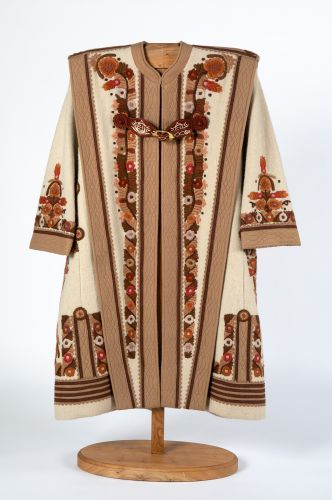
The Csibi family, peasant cloak embroiderers and makers
